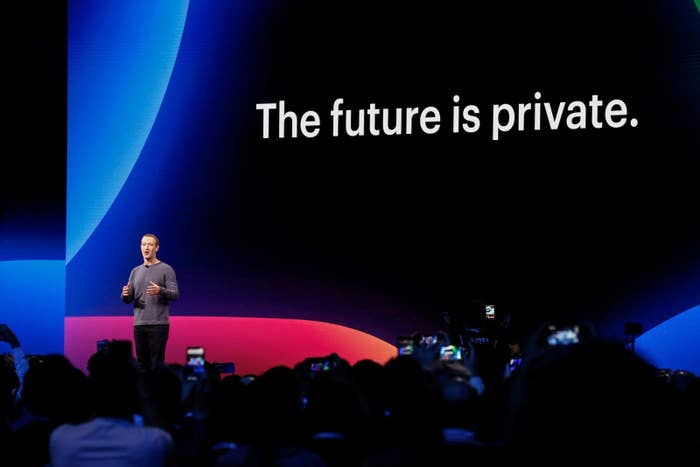
Watch enough Facebook product rollouts, and you’ll notice a certain consistency. The presentation is always polished, delivered with impeccable timing, and spoken with a self-assuredness that’s capable of making the audience question even their slightest skeptical thoughts.
But the skepticism has caught up, and then some. The company’s been digging itself out of a multiyear-long period of scandal, doing the necessary work to shore up its foundation to make sure it doesn’t repeat its mistakes. But its self-assured attitude hasn’t gone away — and it has taken that approach to new fronts. Now, instead of just confidently introducing new products (like “FB5,” the all-new version of its website), it’s very proudly introducing updates on how it’s handling the bad things these products spit out.
Attitude is less important than action. But if you imagined Facebook would be humbled at this point, you’d be wrong. The company's supreme confidence played a major role in many of its scandals over the past two years, from its early notion that the role of fake news in the 2016 election was a “pretty crazy idea” to its attempt to get out in front of bad news about Cambridge Analytica, and, underlying all that, the fundamental design of its products that left it open to exploitation. Overconfidence was a major reason Facebook got into its mess, and it remains as it’s trying to work its way out. Tellingly, when Mark Zuckerberg joked about Facebook’s privacy record on stage nobody laughed.
We Banned The Bad Man is the new product launch https://t.co/74IXf0yz4f
The latest manifestation of Facebook’s glee caught people’s attention Thursday when the company decided to ban a handful of controversial yet very popular members of the far right — including Alex Jones, Laura Loomer, and Milo Yiannopoulos (it also banned Louis Farrakhan). Instead of quietly going about this business, Facebook handed the news to a series of outlets under embargo (disclosure: not including BuzzFeed), the same tactic it uses when releasing products it hopes to get widespread awareness. The bans, as intended, got plenty of attention — especially because the company screwed up, again, and some of the very people it told outlets it had banned were literally broadcasting live on Facebook about their dismissals. But the systems that made these people famous in the first place were largely ignored.
There’s something strange about being so proud of cleaning up your own mess.
You could see Facebook’s self-satisfaction in its security work earlier this week too, during its F8 conference. A thunderous cheering section at the front of the conference hall went wild for each announcement Zuckerberg made as he talked about the company’s commitment to safety and security. At a certain point, even Zuckerberg pointed out that the cheering was out of sync with what he was saying. But on went the announcements, and the cheering.
A few weeks back, Facebook held a press event at its headquarters dedicated to “managing problematic content.” Speaker after speaker delivered their updates in trademark Facebook product release cadence at the event. Toward the end of the day, one reporter in attendance remarked that the speakers seemed to blend into one another. They all exhibited the same zest for their work and assuredness in their solutions.
Facebook has put a good deal of thought into mitigating the harm done by bad actors on its service. And it’s now taking the unprecedented step of removing some of them. Still, there’s something strange about being so proud of cleaning up your own mess.
